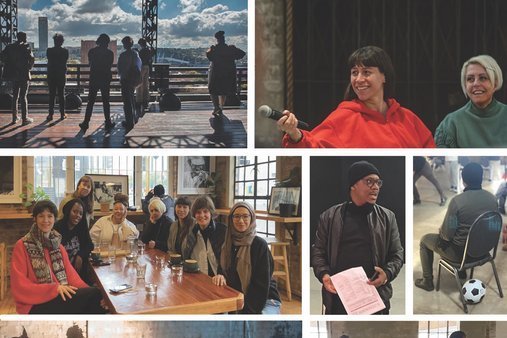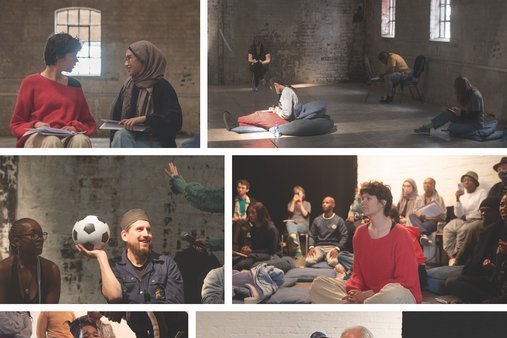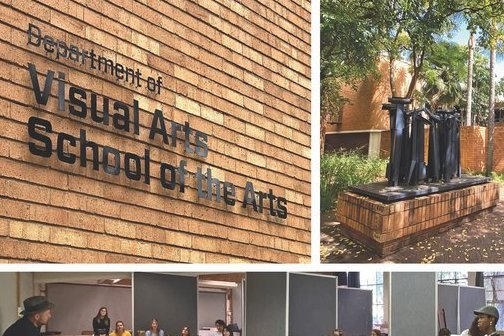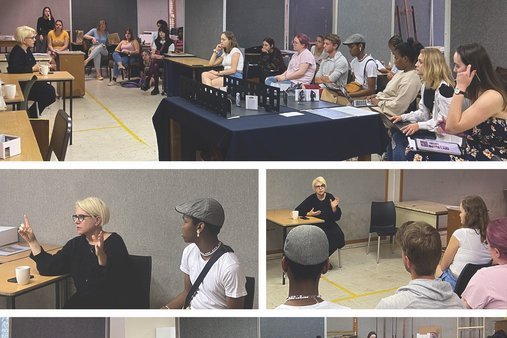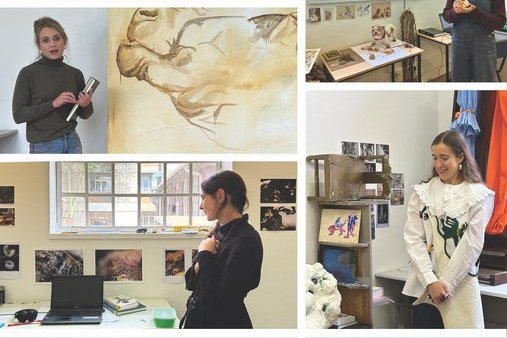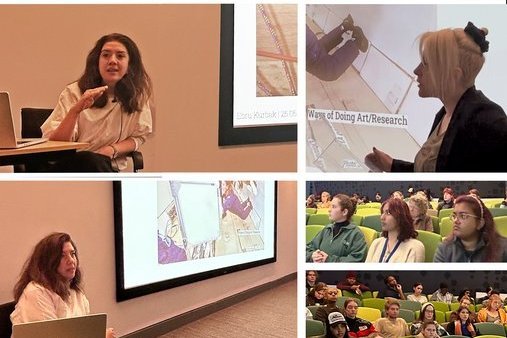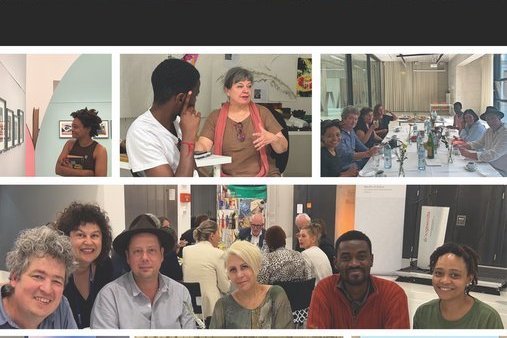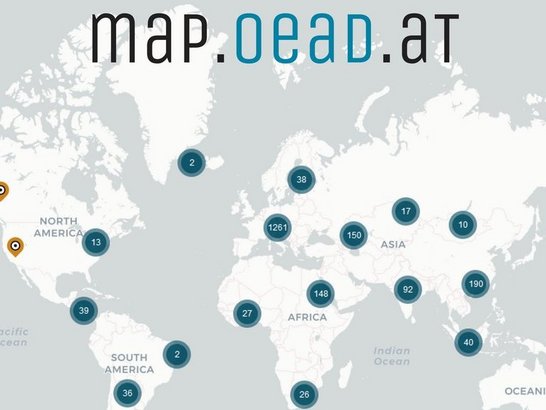
Project completed: P017_South Africa
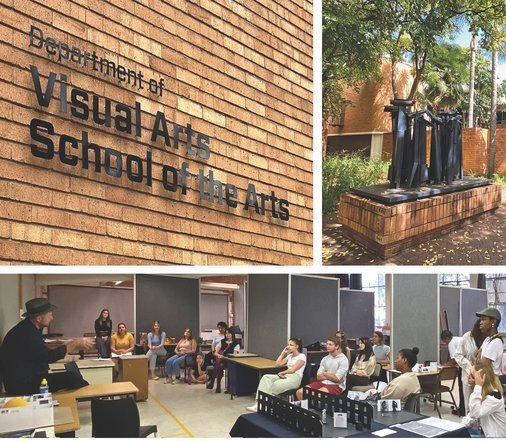
A Research of Doing
Cooperating countries: South Africa and Austria
Coordinating institution: University of Applied Arts Vienna, Institute for Art Studies and Art Education (Austria) Prof. Dr. Basak Senova, basak.senova@uni-ak.ac.at
Partner institution: University of Pretoria (South Africa)
Project duration: 1 May 2021 - 30 April 2023
Budget: EUR 20.000
Abstract:
A RESEARCH OF DOING (ARD) is a collaborative research-based artistic project that takes a joint publication as the main activity and outcome of the collaboration. The research will be facilitated by two teams from the University of Pretoria and University of the Applied Arts Vienna in collaboration with the Centre for the Less Good Ideas in Johannesburg. Assoc. Prof. Dr. Basak Senova, Visiting Professor at Department of Art and Communication Practices at Angewandte will lead the research and coedit the publication in collaboration with Dr. Johan Thom, coordinator of Fine Art and Postgraduate studies in Fine Art at UP and Bronwyn Lace, Director of the Centre for the Less Good Idea. ARD will be executed throughout two segments of inquiry that are designed to practice, analyse, and document: Researching by practicing—“doing”—and documenting, analysing, and discussing by Writing. Constructivism is an extension of symbolic interaction theory which proposes that social constructs are based on relationships and interactions. This methodology serves as a qualitative research method to be followed throughout the first segment of the project. This will be supported by a material and practice-led approach to the various modes of artistic expressions. The project teams will participate in the research as case studies and also through their practice-led artistic research projects, teaching contributions to the programme and the book. With an integrative approach, “The Octopus Programme” of University of Applied Arts Vienna and the Centre for the Less Good Idea will provide further input to this research. (Excerpts from Abstract)
Summary:
ARD evolved organically through the University of Applied Arts Vienna's collaboration with South Africa via the Octopus Programme, a research-based educational initiative fostering artistic collaborations worldwide. While supporting emerging artists and addressing urgent global concerns, the program prompted the need for expanded academic feedback. The ARD project, facilitated by Africa UniNet, offered a crucial opportunity for in-depth research and collaboration. As a partner in the Octopus Programme, the Centre for the Less Good Idea facilitated the convergence of diverse perspectives. ARD aimed to communicate rigorously developed methodologies within artistic practices and demonstrate the rigorous research involved in creative processes. It sought to bridge the gap in communicating artistic research with audiences. The project also addressed the pressing need to theorize diverse, creative modes of 'doing' in the context of growing global postgraduate studies in contemporary arts. This endeavour allowed for the synthesis of diverse perspectives with a critical, open-ended, and multi-modal approach, making a significant impact on art education.
A Research of Doing was carried out across two inquiry segments designed for practising, analyzing, and documenting:
- The first segment involved researching through practice, or "doing," and subsequent documentation.
- The second segment focused on analyzing and discussing through writing.
Constructed on the basis of symbolic interaction theory, which extends to constructivism, the methodology proposed that social constructs are formed through dynamic relationships and multiple interactions. This qualitative research method was applied throughout the initial phase of the A Research of Doing project.
ARD embraced the process of doing as its foundation, where participant activities in creating served as individual case studies subject to critical analysis and communication. The creative processes of doing, sharing, and discussing, coupled with observing and analyzing through various interpretations, constructed new possibilities within the research framework. This approach led to a multilayering of meanings that could be read through one another, supported by a material and practice-led methodological approach to various modes of artistic expression.
The project included online and class discussions, peer-to- peer educational sessions, travels, research field trips, workgroups, collaborative production-based workshops, and lectures. In between, Prof. Dr. Johan Thom and Assoc. Prof. Dr. Basak Senova delivered lectures covering
topics such as perpetual and spatial strategies, artistic methodologies and research, process,
context, production phases, timing, budgeting, documentation, and publishing. The project also
incorporated guest lecturers and academic exchanges and curated the participants’ presentations
with the Octopus Programme of the University of Applied Arts Vienna.
The project involved 81 participants (%14.8 Male - %85.2 Female). We realized four trips (3 to South Africa and 1 to Austria), two included students and researchers, and the other two included only project leaders and researchers. (16 people traveled across two countries).
These research trips combined artistic workshops, in-depth individual and group crit sessions and collaborations with a number of individuals (artists, curators and scholars) and arts organizations (museums, art centres and educational institutions) through which different practices and forms of artistic methodologies were investigated, put into action and then reflected upon by the participants during open discussions.
Considering creative "doing" as the core of academic research was an innovative and timely initiative that aimed to explore new models for establishing sustainable collaboration across diverse fields of knowledge. This venture sought to communicate and gain acknowledgment from all participants involved in the project. The research was conducted within the Africa-UniNet framework, crucially recognizing that innovation, social responsibility, creativity, and future sustainability were integral components for achieving collaborative advancements in the past.
